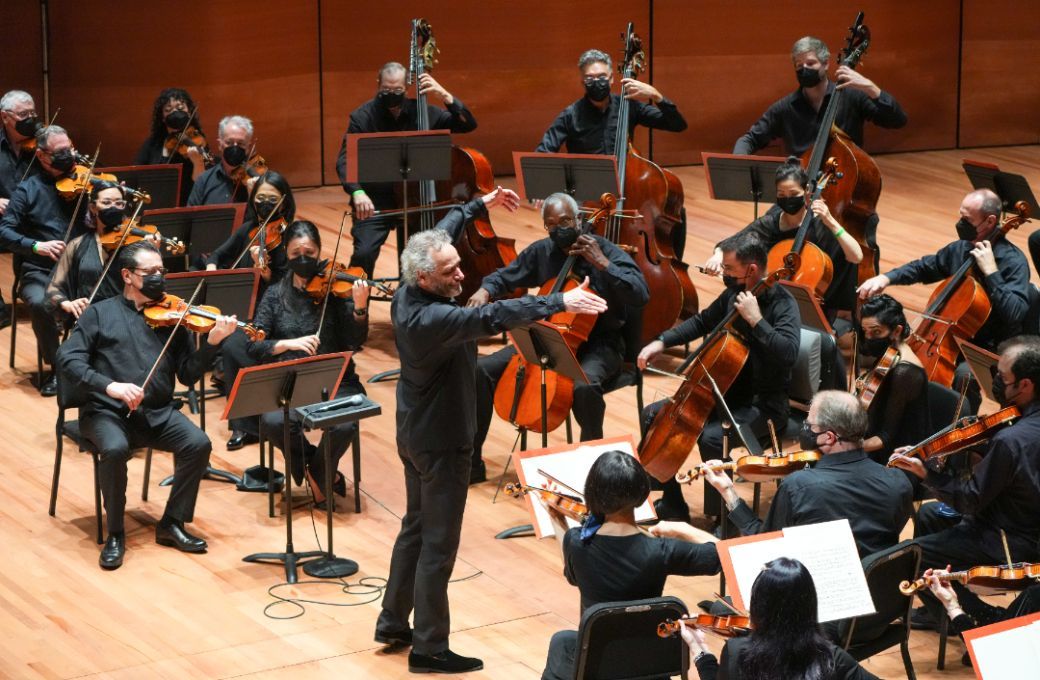Last weekend’s performance by the Mostly Mozart Festival Orchestra was a backward-looking evening. Mozart’s Symphony no. 40 in G minor was the first piece conductor Louis Langrée ever performed with the group, nearly a quarter-century ago, as he told us in impromptu pre-performance remarks. In her own comments, Lincoln Center’s chief artistic officer Shanta Thake described Mozart’s Requiem as a way to “move through grief” related to the pandemic. But the Requiem could also have been for the Mostly Mozart Festival itself, which is no more; its namesake orchestra will be at Lincoln Center again next summer, but no promises after that.

The dominant emotion of this performance of the Requiem, however, seemed to be rage, not grief; tempos were fast and volumes were often extreme. The chorus for this concert was a group called The Unsung Collective, led by Tyrone Clinton, making an impressive Lincoln Center debut. In movements such as the Dies irae and Rex tremendae, the chorus roared, creating a ferocity of sound with the orchestra that I eventually found wearing. Between this and Langrée’s penchant for brisk tempos, moments of relaxation or contemplation were few and far between. When they did occur – as in the Lacrimosa and Agnus Dei – they instantly became the most memorable parts of the performance.
The vocal soloists were soprano Sunhae Im, mezzo-soprano Daniela Mack, tenor Matthew Swensen and bass Dashon Burton, each impeccably musical and each thoroughly representative of their respective voice types. They were most impressive when singing together, creating both a blend and especially a clarity of counterpoint that was harder to discern in passages using only the larger forces. The movements that featured the vocal quartet, especially the Recordare, added up to more than the sum of their parts. A special shout-out is also due to trombone soloist Tom Hutchinson, whose obbligatos in featured sections were masterful.
Langrée and the orchestra’s take on the Symphony no. 40 was both more idiosyncratic and more convincing. Here the quick pace allowed a gestural approach that framed the symphony as a sort of restrained Romanticism, complete with cathartic climaxes and near-triumph over dark forces. (Imagine what you’d get if a conductor who somehow didn’t know the piece thought it was by Beethoven.) Langrée sometimes foregrounded unexpected details, such as a foreboding descending bassoon line in the first movement; in the second and third movements, the orchestra simply leaned into the darker, more aggressive passages, thus de-emphasizing Mozartian elegance in favor of a bleaker vision. Conductor and orchestra – very much inseparable after all these years – mined the finale, especially the development section, for a gripping, satisfying dramatic tension. It’s not often that I want, at the end of a Mozart symphony, for it to not be over yet.


